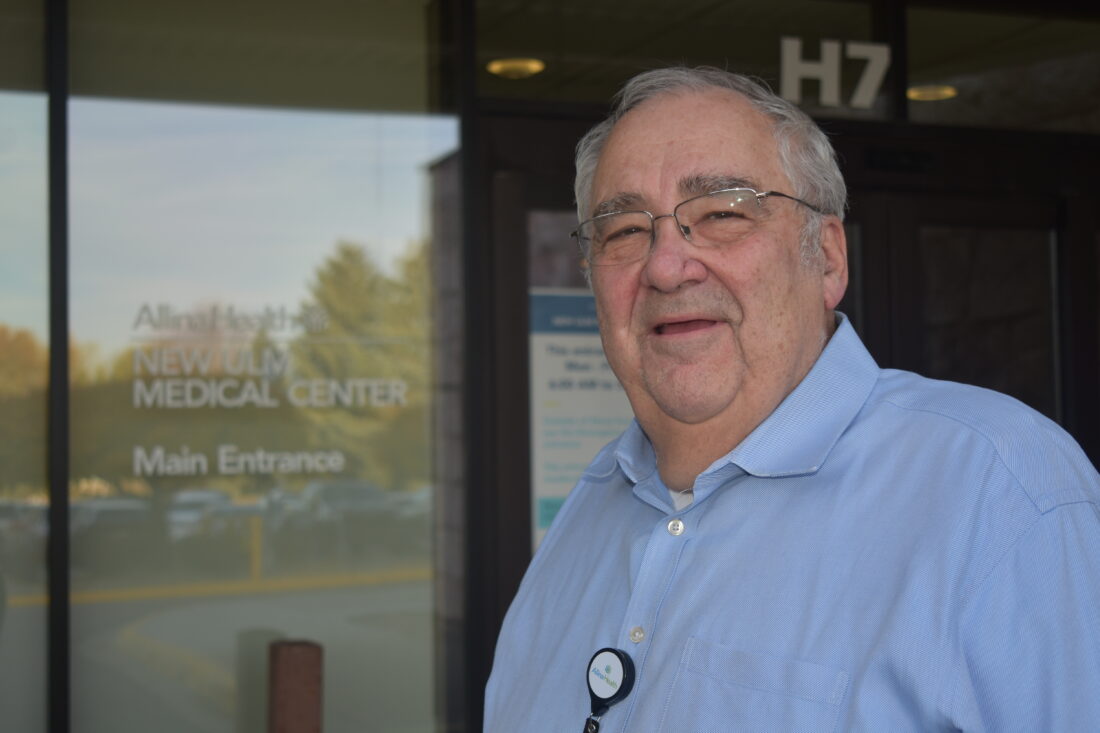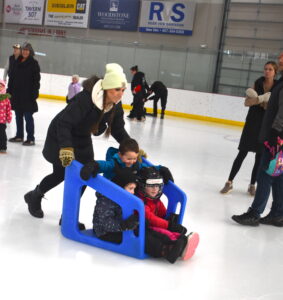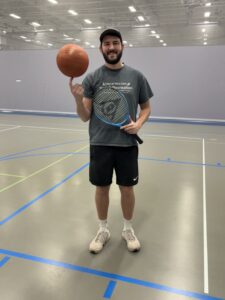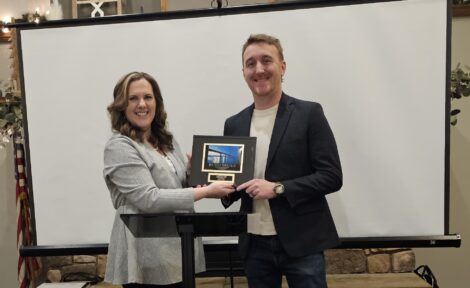‘You have to embrace it’
Dr. Papierniak looks back on four decades at NUMC

Dr. Karl Papierniak began working at New Ulm Medical Center July 1984. After over 41 years as a general surgeon, he is preparing to retire in Feb. 2026.
NEW ULM – In 1984, Dr. Karl Papierniak came to New Ulm to practice as a general surgeon. He chose to practice in New Ulm because he felt the quality of medical care was excellent. Now as Papierniak prepares to retire after 40 years at New Ulm Medical Center, he can safely say the medical center did not disappoint.
Papierniak is originally from Illinois, growing up in the suburbs of Chicago. He completed his undergraduate work in Iowa, and attended medical school at Loyola University Chicago Stritch School of Medicine and completed his residency there as well.
Papierniak said growing up he never planned to be a surgeon, or even enter the medical field. Though his father was a urologist, Papierniak initially went to college to study math.
“I didn’t decide until late in my junior year to go into medicine,” he said.
Papierniak could not remember why he decided to switch to medicine, but he remembers why he chose to be a surgeon.
“In surgery, I could use my knowledge to figure out what is wrong with people and use my technical skills to make them better, to get back to healthy lives,” Papierniak said. His favorite part of the job was seeing patients improve after treatment.
He also acknowledge that he was of fan of the tools and technology connected to the surgical profession. His excitement over new advancements help keep him at the forefront of his field.
Papierniak remembered when he was first training to become a surgeon, endoscopy was a relatively new tool. Endoscopy is any medical procedures that uses a scope with a camera to view the inside of a body. Realizing this was a valuable new tool, Papierniak asked NUMC to set up an endoscopy department as a condition for him working in New Ulm. NUMC was already doing some endoscopy procedures on a small scale, but Papierniak wanted to see it expand.
Endoscopy soon became a popular tool for examining the colon, but in the 1980s and 1990, hospitals were not conducting colonoscopy as a screening tool.
“Back then you needed a reason to order a colonoscopy,” Papierniak said. “A person needed symptoms first.”
Everything changed on July 1, 2001.
“That is when Medicare said it would pay for screening colonoscopy, which pretty much meant all insurance had to follow suit,” he said. Now, the colonoscopy is a common screening tool; though Papierniak advised the recommended age for colonoscopy is 45 instead of 50.
Papierniak said the biggest changes to NUMC since he arrived were personnel. He said the number of physicians have dramatically increased, with a greater demand for specialists.
“When I came there were 14 doctors,” he said.
Papierniak was the second of two general surgeons. There were eight family medicine, one orthopedic surgeon, one obstetrics and gynecologist (OB-GYN), one pediatrician, two internists, an outreach oncologist and two Certified Registered Nurse Anesthetist.
Now, NUMC has four general surgeon, 14 family medicine physicians, three orthopedic surgeons–one OB-GYN, one pediatrician; one full-time oncologist, eight CRNAs, two podiatrist, a neurologist, dermatologist, rheumatologist and three hospitalists.
The type of procedures have changed. In addition to expanded colonoscopy care, laparoscopic surgery has become common. There is also robotic assisted surgery.
Papierniak said today the Emergency Department is staffed by providers 24/7, but when he first arrived it was nurses triaging the patients. In addition, the New Ulm Clinic was at Garden and Center. If a physician was at the clinic but got called into an emergency, they needed to drive five blocks across town. If an a patient needed an X-ray, that would add another half hour while the film was developed.
Papierniak said technology has really sped up the process for treating patients. Electronic medical records can be transferred between hospitals in an instant.
Papierniak said in the old days transferring a patient would have meant a long ambulance ride, with hard copy of the medical file being carried along.
Looking to the future of medical advancement, Papierniak predicted Artificial Intelligence might be used as a diagnostic tool.
“I don’t think AI is very useful now, but I think it will get better,” he said. Specifically, he believed AI would be best for diagnosing rare diseases that most doctors never encounter.
He said the problem with AI is it has trouble identifying the difference between well researched medical information and the poorly researched information.
Whatever the next advancement in medicine is, Papierniak advised the next generation of surgeons to learn as much as possible. He said one his favorite parts of the job was learning new things.
“You have to embrace it,” Papierniak said.
Papierniak’s last official day at NUMC is Feb. 2, 2026. After that date, he will become a full-time grandfather. All seven of his grandchildren live in the Twin Cities area and he plans to move up there to join them full-time.
Looking back on his four decades at NUMC, Papierniak said he was never disappointed with the quality of medical care he saw.
“The access to care here is phenomenal,” he said. “Especially when compared to the Twin Cities. A person can get X-rays, clinical appointments and surgery all in one place.”
Papierniak said he hopes New Ulm residents know how fortunate they are to have this high level of medical care.




